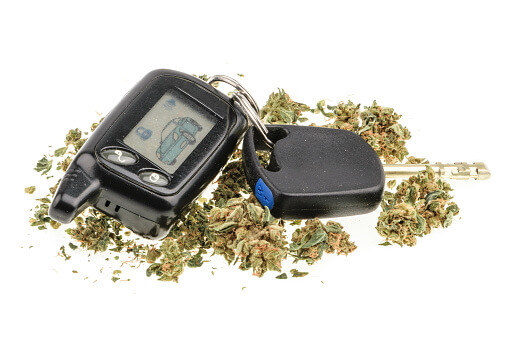
Illinois recently became the 11th state in the U.S. to legalize recreational marijuana for adult use. As of January 1, 2020, residents ages 21 and older can purchase cannabis products from licensed sellers. There may be as many as 295 cannabis shops operating in Illinois by year’s end.
Of course, the legalization of marijuana may raise safety concerns on Chicago-area roadways. Only weeks after cannabis was legalized in Illinois, a Chicago driver caused a head-on collision while under the influence of marijuana. According to police, the man crossed the centerline and collided with an oncoming car on Route 53.
Luckily, no injuries were reported from either party involved. The driver who caused the crash was arrested and charged with DUI after failing a field sobriety test.
A study conducted by AAA examined a trend in fatal crashes after Washington state legalized recreational marijuana in 2012. From 2008-2012, only 8.8 percent of drivers involved in fatal crashes tested positive for THC, the psychoactive ingredient found in cannabis. From 2013-2017, the number of drivers involved in fatal crashes who tested positive for TCH jumped to 18 percent.
“This study enabled us to review a full 10-years’ worth of data about the potential impact of marijuana on driving safety – and it raises significant concerns,” said Dr. David Yang, executive director of the AAA Foundation for Traffic Safety.
We could likely see the same thing happen in Illinois. That’s unless recreational marijuana users practice responsibility and avoid getting behind the wheel when it’s not safe to do so.
THC can impair drivers in much the same way as alcohol and other drugs. Here’s how:
Those who drive under the influence of THC double their chances of being involved in a crash.
Determining whether or not a driver is high on THC poses challenges for law enforcement. Breath test devices have recently been produced by engineers, but are not widely available to law enforcement agencies. Blood tests may be useless as THC could stay in a driver’s system for several days or weeks.
If you were injured in a crash by a driver who chose to get behind the wheel after using marijuana, there is no question as to who was at fault. The insurance company who represents the at-fault driver will likely attempt to shift the blame on you.
That’s why you need an experienced and knowledgeable car accident attorney in your corner, advocating for you every step of the way. You can count on the Chicago legal team at Coplan + Crane to help you in the pursuit of justice.
Contact us online to find out how we can help maximize your compensation.